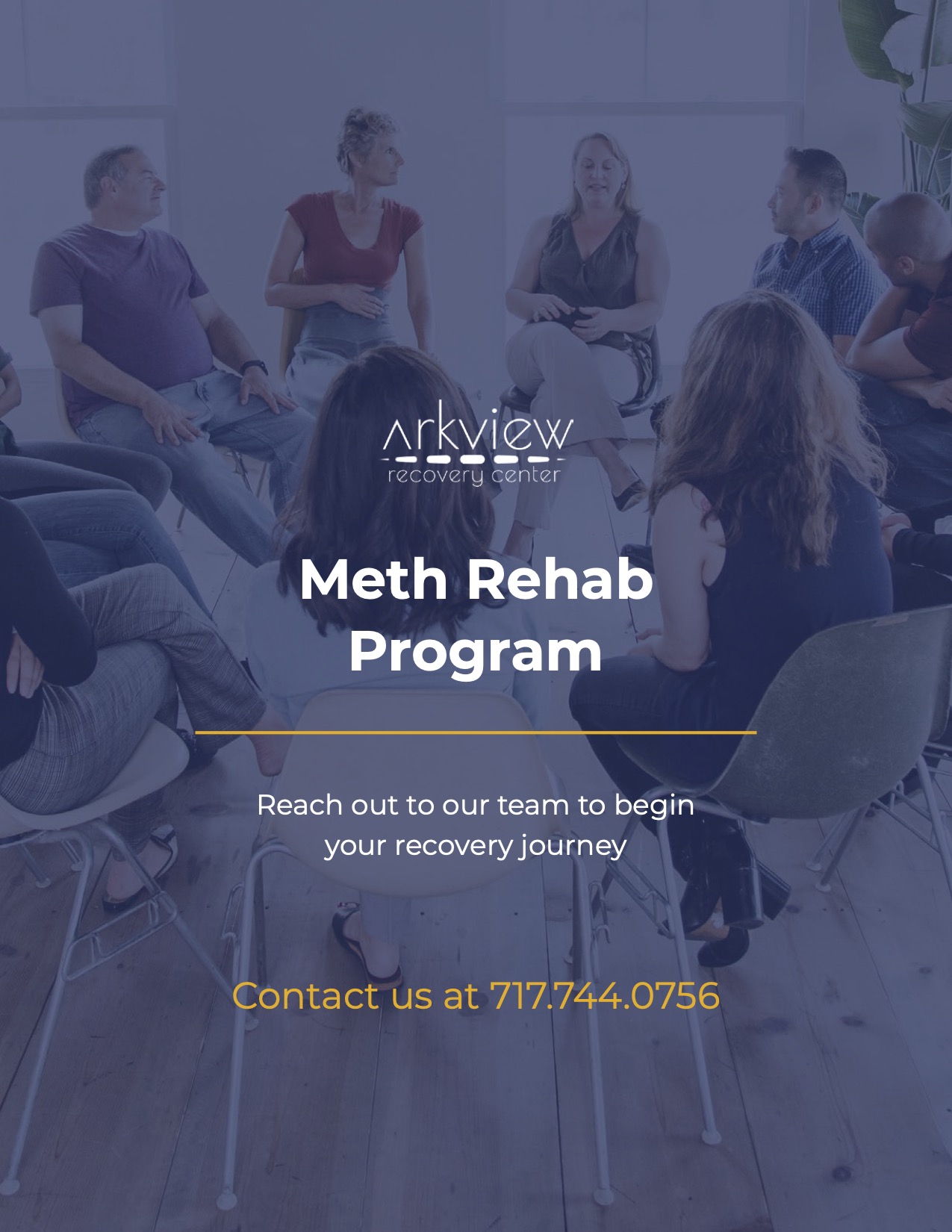 Meth use can start as a way to have fun, stay focused, or reduce the need for sleep. However, when use turns into addiction, meth can be a monster. Millions of Americans use meth even though it is a dangerous and addictive drug. People who are addicted to meth usually cannot quit on their own and seek assistance from a substance abuse treatment program.
Meth use can start as a way to have fun, stay focused, or reduce the need for sleep. However, when use turns into addiction, meth can be a monster. Millions of Americans use meth even though it is a dangerous and addictive drug. People who are addicted to meth usually cannot quit on their own and seek assistance from a substance abuse treatment program.
Meth rehab treatment gives patients the tools they need to stop using meth and regain control of their lives. For those struggling with meth addiction and their families, learning more about meth use, treatment, and recovery can help you make informed decisions about recovery care.
Contact us today at 717.744.0756 to learn more about meth rehab treatment at our center.
If you or a loved one needs substance abuse treatment, learn more by calling the specialists at Arkview Recovery at 717.744.0756.
Methamphetamine Addiction – What You Should Know
Methamphetamine (meth) is strongly addictive, making it one of the more dangerous drugs out there. Because meth operates by co-opting the reward pathways in the brain, users quickly become dependent on it. Here are some facts to know about meth and addiction:
- Meth can be smoked, sniffed, injected, or taken orally.
- Most illicit meth in the U.S. is manufactured abroad and smuggled in. Meth manufacturing is not regulated, meaning the product can be tainted with toxic substances.
- People who use meth for a long time can develop psychiatric issues that persist even after they stop using the drug.
- Another long-term effect of meth use is brain damage, meaning that users can develop problems thinking, remembering, making decisions, and their personalities may change.
- Using meth increases a person’s risk of contracting HIV and hepatitis.
- Women who use meth while pregnant may have complications, and their children may be at risk for developmental issues.
There are many reasons to seek out meth addiction treatment. While we cannot cover all of them, here are a few essential reasons to seek out meth addiction help:
- Meth changes the brain – The changes in thought and behavior that result from chronic meth use can be challenging to manage without professional assistance.
- Meth is disordering – With very little effort, users can become addicted, develop psychiatric issues, or undergo a complete personality transformation.
Meth rehab treatment can help patients handle these changes and adjust to a new way of living.
- Withdrawal symptoms are severe – If you have used meth for an extended period, you need professional support to stop using. Trying to detox on your own can be dangerous and make it almost impossible to remain sober. Symptoms that may arise during a meth withdrawal include anxiety, depression, fatigue, irritability, sleep disturbances, and intense cravings.
- Meth is a destructive force – Meth use can destroy a person’s finances, relationships, physical health, and mental well-being. Treatment can help people repair the damage done to their lives and work towards building a better future.

What Happens In Meth Addiction Treatment?
Deciding to get help for meth addiction is very brave but can also be frightening. It can be reassuring to learn a little more about what treatment programs include. Some of the components of a meth addiction treatment program may be:
- Detox – Since meth is physically addictive, patients often benefit from medications and treatments to help them navigate the withdrawal process. Patients also receive counseling and support that encourages recovery.
- Residential program – After patients complete detox, they will often transition to a longer, more comprehensive program where they stay in the treatment center full-time. Patients participate in individual counseling, group therapy, and other therapeutic activities.
- Intensive outpatient program (IOP) – During IOP, patients still attend counseling and groups at a treatment center each day but do not stay overnight at the treatment center. This is often a transitional step for those who have already completed residential care.
- Outpatient counseling and support groups – After the intensive portion of addiction treatment is complete, many people continue with outpatient counseling and attend support groups such as Narcotics Anonymous.
While it can be challenging to choose treatment, it can also be rewarding.
What Else Helps with Meth Withdrawal?
Medical detox and counseling are two essential components of meth addiction treatment. However, other things can help a person cope when they stop using meth. Some tips for how to help with meth withdrawal include:
- Eating well – Substance abuse impacts the quality of nutrition consumed by users and their bodies’ absorption of nutrients. Rehab facilities teach patients about good nutrition and help them develop healthy eating habits.
- Getting rest – During the recovery process, patients’ sleep patterns may be off. Treatment can help people find ways to get sufficient rest. Relaxation techniques such as massage therapy, yoga, meditation, or acupuncture sessions are often available at treatment centers.
- Exercising – Exercise is a great way to improve mood and reduce cravings. Exercise can also help in healing the body from some of meth’s physical damage.
- Developing a support system – A strong social network is crucial for lasting recovery. Support groups or an alumni program may be available to patients, giving them a safe place to meet with others who understand their experiences.
Understanding the challenges of overcoming meth addiction empowers individuals to seek the comprehensive support necessary to heal both body and mind. At Arkview Recovery, we offer individualized care that addresses each person’s unique needs.
 Benefits Of Getting Treatment For Meth Addiction
Benefits Of Getting Treatment For Meth Addiction
Studies have shown that people who participate in a substance abuse treatment program have the best chances of returning to work or school and maintaining their recovery over time. One of the most critical aspects of treatment is learning to create a strong support system. An addiction treatment program provides that in the short term while teaching patients how to develop it for themselves in the long term.
Some other benefits of getting treatment for meth addiction may include:
- Improved physical health – Meth use causes a wide range of adverse physical effects, including weight loss, dental issues, and skin problems. After quitting meth, many patients have improved overall health.
- Better relationships – Substance abuse can destroy relationships with friends and family. Seeking help is the first step in rebuilding positive connections.
Counseling and therapy can also improve communication skills within relationships.
- Job or school success – Meth use can seriously impact academic or work performance. With the tools learned in treatment, patients are better equipped to succeed in these areas.

You Don’t Have To Do It Alone
In addition to professional treatment, there are many things you can do to support your recovery from meth addiction. Here are a few tips to help you along the way:
- Find support from others going through recovery – Support groups such as Narcotics Anonymous can provide a sense of community and understanding, making it easier to stay clean.
- Stay busy – Boredom can be a trigger for relapse. Fill your schedule with activities that you enjoy or that give you a sense of purpose.
- Practice self-care – Taking care of yourself is crucial for long-term recovery. This can include getting enough sleep, eating nutritious foods, and engaging in activities that make you happy.
Meth addiction is a challenging journey, but with the proper support and tools, it is possible to recover and live a fulfilling life without the grip of addiction.

Aftercare for Long-Term Success
Recovery is a lifelong process. After completing a treatment program, it is essential to continue with aftercare to maintain sobriety and address any challenges that may arise. Some forms of aftercare for meth addiction recovery include:
- Outpatient therapy – Continuing therapy sessions can provide support and guidance as you navigate life in recovery.
- Support groups – Participating in groups like Narcotics Anonymous can provide a sense of community and accountability.
- Sober living homes – These group living arrangements provide a supportive environment for those in recovery to continue practicing sober habits.
- Ongoing education – Learning more about addiction and recovery can help individuals stay informed and equipped with tools to maintain sobriety.
Seeking help for a meth addiction may seem daunting, but it is the first step towards recovery and a better life. With the proper support and treatment program, it is possible to overcome meth addiction and live a fulfilling, sober life. If you or someone you love is struggling with meth addiction, reach out for help today.
Our Treatment Options
At Arkview Recovery, we offer comprehensive treatment programs designed to help individuals overcome meth addiction and regain control of their lives. Our experienced team of addiction specialists provides personalized care, including medical detox, therapy, and aftercare planning.
We understand the challenges of meth addiction and are here to support you on your journey towards recovery.
“Had a great experience! The counselors are great and very helpful. Highly recommend this place if you need help overcoming addiction!”
– M.I
“Arkview is amazing. The staff is very caring and sincerely concerned about your recovery. They provide all the tools needed for a better life, its just up to you to use them. I highly recommend Arkview for those seeking recovery. I cant imagine a better place or experience.”
– Linsey M
“Arkview saved my life! Personal staff that cares. Supplied me with all the tools needed to maintain long term sobriety. Went on multiple outings. I highly recommend Arkview if you are willing to stay sober”
– Brad B
 Call Arkview Recovery for Meth Rehab Services
Call Arkview Recovery for Meth Rehab Services
At our treatment center just outside of Harrisburg, our patients can access state-of-the-art substance abuse and addiction treatment. Each patient receives an individualized treatment plan to get the help they need in a way that will work best for them. If you or someone you care about has been struggling with addiction to meth, reach out to our caring and knowledgeable staff today at 717.744.0756 or through our online form.

Kyle is Lead Therapist at Arkview Recovery Center. He holds a Master of Social Work degree from Temple University and is a Licensed Clinical Social Worker. He has years of experience working directly with individuals who suffer from addiction and mental health disorders. Being in long term recovery himself, Kyle is very passionate about the recovery process. He is heavily involved in the local recovery community in which he enjoys his commitments to service and giving back. His specialty is in group therapy and developing clinical staff. Kyle brings to Arkview a holistic approach to recovery, specializing in mindfulness, reality therapy, and solution-focused therapy.

